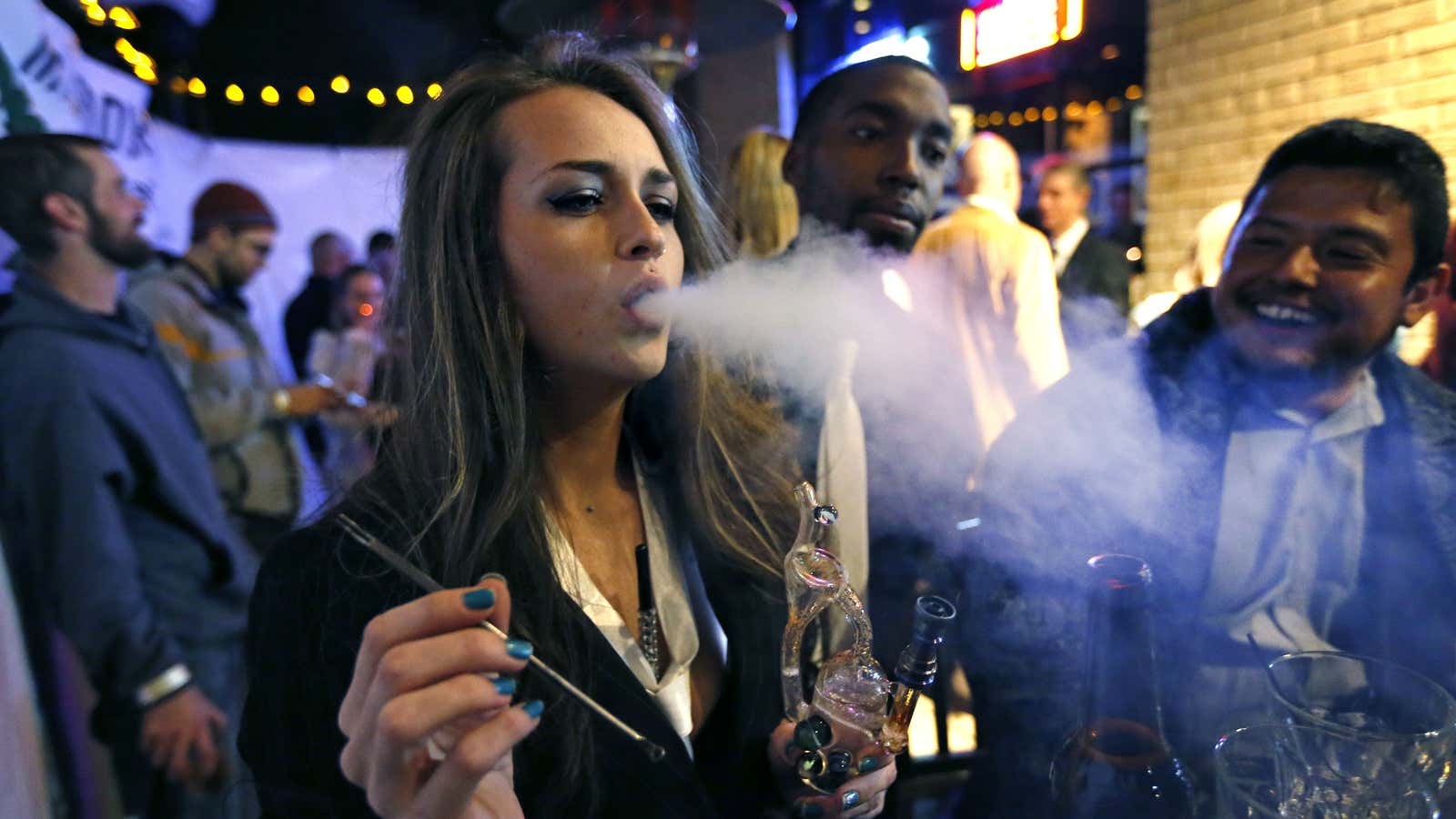They take trips for science, riding highs from recreational drugs on camera as part of a bigger mission to educate people about the chemical effects on the body and brain. Then they post the videos to YouTube—all with the blessing and support of the Dutch government.
Nellie Benner, Bastiaan Rosman, and Rens Polman are the three hosts of DrugsLab, a YouTube channel and publicly-supported show out of the Netherlands. The three recently celebrated a milestone: hitting more than 500,000 subscribers on YouTube, giving their singular show an impressive global reach.
The concept behind DrugsLab is simple. Viewers leave comments on the trio’s videos with suggestions for drugs they are curious to see the team try. Each week the team chooses a substance and then one of them tries it on camera, while connected to body-temperature and pulse readers. The three have tried all manner of drugs, including cocaine, salvia, speed, MDMA, and peyote. They post the footage to YouTube along with a corresponding “dos and don’ts” video.
The show—supported by the Dutch Ministry of Education, Culture and Science—is part of program called “Spuiten en Slikken” (Shoot and Swallow) on BNN, a public broadcasting station in the Netherlands. The first episodes went live in 2005 and the show has increased its viewership since.
In each episode, the hosts discuss the drug they are about to try, the side effects, dangers, and whether it’s good to avoid other substances while trying them. They speak in Dutch, but subtitles to the show are in English for their international viewers.
DrugsLab fits somewhat neatly into Dutch culture, which has traditionally adopted relaxed laws and attitudes toward recreational drugs—and recent data on drug use across the European Union suggest the relaxed approach may play a positive role in the prevention of drug-related deaths. According to a report by the European Monitoring Centre for Drugs and Drug Addiction, the Netherlands has among the lowest rates (pdf) for drug-induced mortalities and opioid use, compared to its EU neighbors. Those numbers are backed up by The Guardian reporting that found the country enjoys low rates of hard drug use compared to other parts of Europe.
“I believe that informing is better than keeping silent, after all we are living in an era where youngsters get in contact with drugs regardless,” Benner told Vocativ earlier this year.
